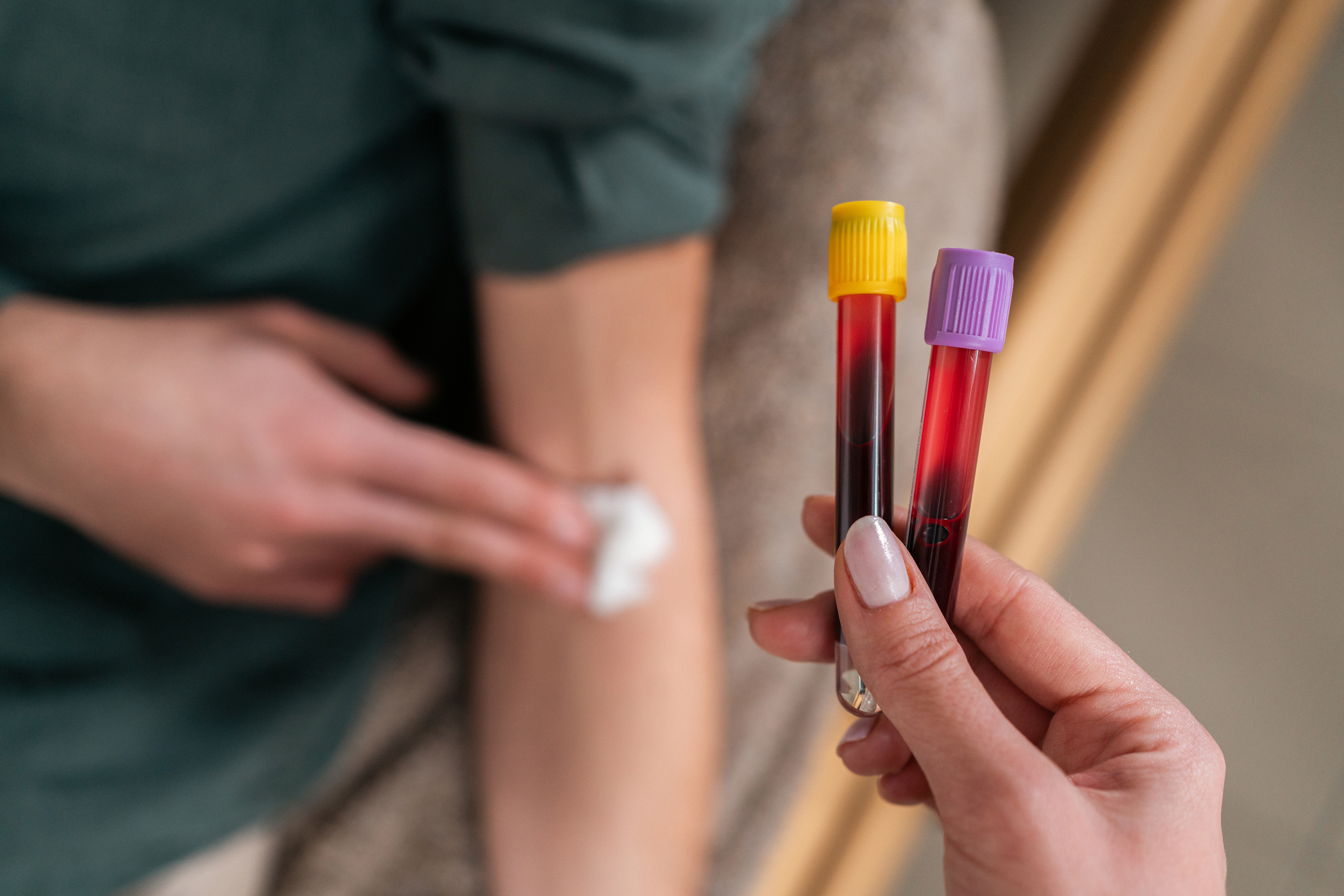Phlebotomy, O.C.
Program Overview
Phlebotomy, O.C. (PBTM-CER) 165 clock hours 5.5 occupational credits

The Phlebotomy Certificate is a 5.5 vocational credit, 165 clock-hour occupational certificate that can be obtained in one semester. The Phlebotomy Certificate prepares a student for employment as a phlebotomist. A phlebotomist obtains blood by venipuncture or skin puncture and is an integral part of a clinical laboratory. A student who completes the occupational certificate is eligible to take the national certification examination through the National Healthcare Association.
Phlebotomy, O.C.
5.5 credits
to earn certificate
2 courses
to complete
78.88%
completion rate
Guided Pathway
Review the guided degree pathway where you will find a detailed plan for your courses and other requirements each semester that prepare you for graduation and your transfer goals.

What our graduates are doing now!
Career opportunities as a Phlebotomist are mainly in a laboratory, hospital, or blood bank.
STARTING SALARIES
The average Phlebotomist salary in Florida is $33,074, but the range typically falls between $29,789 and $36,939. Phlebotomists earn an average hourly wage of $15.23. Salaries typically start from $11.52 per hour and go up to $19.82 per hour.*
*Salary ranges can vary widely depending on the city and many other important factors, including education, certifications, additional skills, the number of years spent in your profession.
Upon completion of the Phlebotomy certificate program, graduates will be prepared for employment as a phlebotomist. Phlebotomists obtain blood by venipuncture and skin puncture and are an integral part of a clinical laboratory.
This certificate program is a combination of didactic and clinical instruction completed within one semester term.
Program Learning Outcome:
- Students will be able to demonstrate skills and knowledge necessary to perform safe and accurate phlebotomy techniques in a healthcare setting.
Courses are normally offered during the fall term each year.
This program offers students:
- Low student to faculty ratio
- Hands-on learning environment
- A student who completes the occupational certificate is eligible to take the national certification examination through the National Healthcare Association.
To be considered for admission, the applicant must submit the following by the established deadline stated on the College’s website:
- Submit a Florida Gateway College admission application to the Office of Enrollment Services;
- Submit the Phlebotomy supplemental application located on the last page of this application packet to the Nursing and Health Sciences Department, Building 103, Office 138.
Additional admission information may be found in the Phlebotomy Admission Packet on the College website at www.fgc.edu. Florida Gateway College reserves the right to make changes in admission criteria and program information as circumstances require in the continuing development of the program.
To meet clinical agency requirements for clinical experience, all students in the Nursing and Health Sciences programs must meet state and federal regulations as described by Florida Statutes S. 400.211. A Level II background check and drug/alcohol screening are required. Further instructions regarding the background and 10 panel drug/alcohol screen are provided during the first week of the program.
Please note that random screening may be required while in the program. Students are responsible for the cost of all screening done for admission and randomly during the program.
Cost of Attendance
Explore FGC and your Program of interest